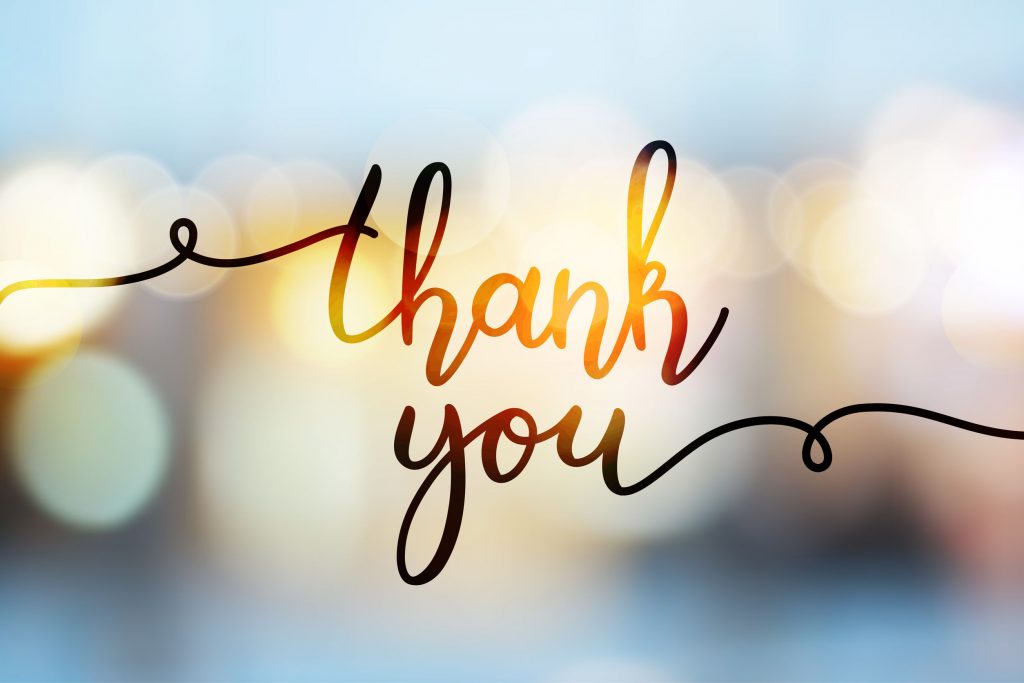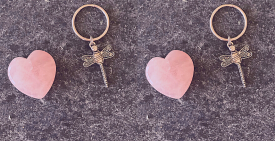
With a new year upon us, we wanted to thank all those who shared their stories with us over the past 12 months — and all those who read them with an open heart. Modern Loss pieces are as unique as the relationships that inspired them; but they can also reveal some pretty universal truths about what it means to live with loss (or support someone through it). Here are just a few of the lessons that you — our writers, our community — taught us in 2019.
1. You can’t protect people from the pain of grief.
Jennifer Pastiloff writes: “They were the loving choices in the moment, both not telling my Bubbe that my dad had died and not allowing us to go to his funeral, both things aimed at protecting the hurting persons from hurting more. But, do we get to do that? It may seem like protecting them in the moment, but it’s absolutely not in the long term. Same goes for lying to ourselves. We don’t need protection. We need hands to hold. And tissue boxes, and steering wheels to pound, and watches that belonged to our dead fathers which we think bring us luck, and people to watch breathing in their sleep, and books and funny texts and poems in old notebooks and friends who say I got you.”
2. ‘I can’t imagine’ isn’t a helpful thing to say. Here’s why.
Becky Benson writes: “When someone doesn’t know what to say, ‘I can’t imagine,’ is a phrase many of us hear. It’s said simultaneously to confer great weight upon the situation at hand, while also allowing the person commenting to distance themselves from it. ‘Neither can I,’ is always my response. I say it to make the point that it’s so horrendous that even I, the one who’s living through it, can hardly believe I am. The only difference between us is that I wasn’t afforded the luxury of not living through my child’s death.”
3. Loss makes unwitting grief experts of us all.
Nishta J. Mehra explains: “Welcome to the club no one wants to join, I find myself saying time and again, writing long emails, copying out poems, showing up at funerals, and making myself available for empathizing and advice. You may want to stay off of social media on Mother’s/Father’s Day; buy cheap plates at Goodwill and find a safe place to throw them; ask your best friend to serve as information hub so that people go through them instead of you; don’t skip your flu shot this year, because your immune system is going to be run down for a while. … The work of offering to walk with others through the strange minefield of grief is work I never anticipated doing, an expertise I unwittingly acquired, but it is work I feel viscerally called to do.”
4. But it’s ok to set boundaries.
Suchandrika Chakrabarti writes: “Being seen as an expert in grief by others means that you will be called upon by very needy people you don’t want to turn down. That’s some very taxing emotional labor, and it will take a toll on you. Keep these conversations within the boundaries of what you can handle, and learn how to extricate yourself from them in kind ways. You might do that with a hug, or with the honest admission that you can’t talk about this subject any further, right now. Delivering a truth like that to the newly bereaved is a gift because no one else is speaking clearly to them right now. After all, you have to be able to put your own headlamp on properly first, before helping someone else who’s just found the awful entrance to the tunnel.”
5. ‘Staying positive’ has its limits.
Lori Gottlieb tells us: “People would say things like this to Julie [Gottlieb’s dying patient]: Are you sure you’re dying? Have you gotten a second opinion? Be strong. You need to be less stressed. It’s all about attitude. You can beat this! I know somebody who took vitamin K and was cured. I read about this new therapy that shrinks tumors — in mice, but still. You really have no family history of this? (If Julie did, the person asking would feel safer; it could be explained by genetics.) … I, too, had the instinct to protect Julie’s feelings from the fact that she was going to die, but soon I realized how unhelpful that was. Not speaking about something doesn’t make it less real. It makes it scarier. And so we looked at death head-on together, even writing her obituary in my office.”
6. Grief is fluid, and today is not forever.
RoseAnna Cyr writes: “These days when all the world seems to be conspiring to drag you face first into the churning grief ocean. When everything you experience reminds you of everything you have lost. These days that our brains flood with sensory memories, threatening the stability of the emotional progress we have battled for. These days are not forever. Tomorrow will feel different. A year from now will feel different. Our grief may not end, but our worlds will grow. With that growth comes healing. One day. Someday. Probably not today.”
7. And in its persistence, grief reminds us that WE ARE ALIVE.
Sarah McColl writes: “My grief scooped me out, and with time, it stretched me; it made me larger. The new low made space, in other words, for new highs, and I had a heightened, vibrating sense of awareness. This pink sunset, these spotted heirloom beans; this warm fisherman’s sweater. The wind through the passenger-side window on the highway; sailboats bobbing on a bay, a frozen margarita, fresh lilacs; a handsome, broad-shouldered man, three-part harmony. All of life seemed like a poem: incisively beautiful and much too brief.”
Modern Loss has launched its Patreon campaign Click here to become members of the Modern Loss community.








